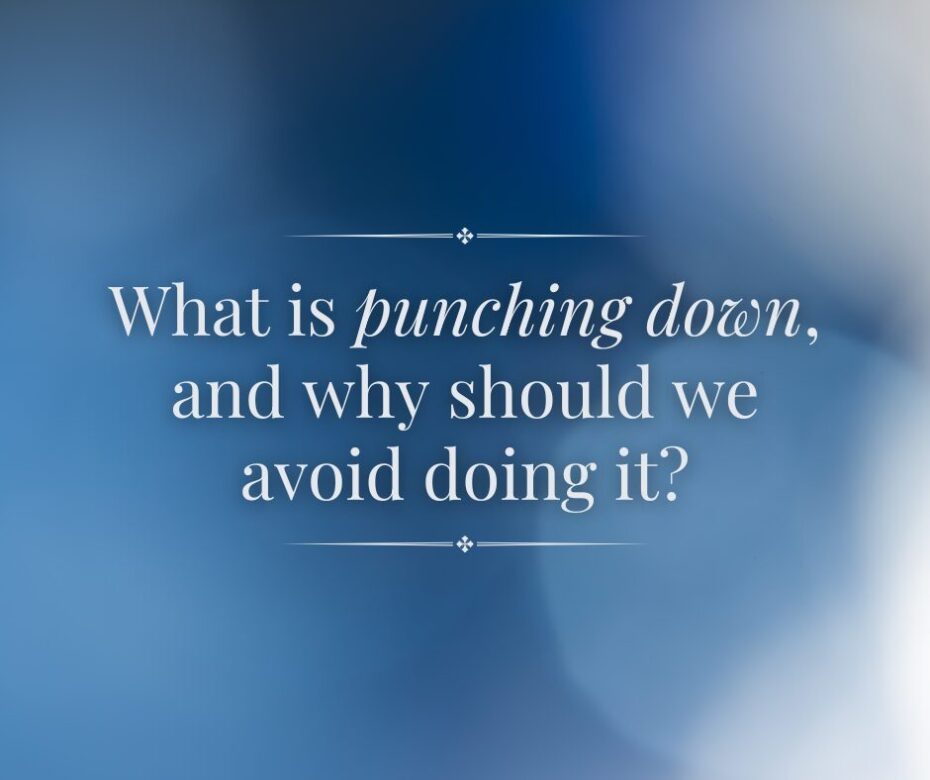Have you heard the term punching down? I was unfamiliar with it until Colin Jackson (on the GES staff) explained it.
Cambridge Dictionary defines punch down as follows: “to attack or criticize someone who is in a worse or less powerful position than you.” It adds, “If a comedian punches down, they make fun of people who are less powerful or privileged.”
GES has long had that policy. We don’t punch down. But we didn’t know there was a name for that.
When we comment on statements by leading Lordship Salvation proponents (like MacArthur, Sproul, Piper, Platt, or Chan), we mention their names in a footnote (or sometimes even in the text).
We follow the same practice with Flexible Free Grace teachers. We cite only quotes from those with a significant followingi and mention their names in the footnotes.
Of course, tone is essential. We aim to be gracious and irenic in tone, even when discussing teachings we strongly disagree with.
I asked Colin to write up what he meant by punching down as it relates to GES. Here is what he wrote:
I have noticed that some respected media personalities follow a policy of not “punching down.” That is, if a person falls below a certain threshold of influence, you may reference the content of what that person said without giving any identifying information. The reason for this is threefold:
- Why does it matter who said it? If a person with no following says something online, it’s the same as if you heard a random stranger say something while walking down the street. Their identity is not newsworthy, but what they said may indicate a general public belief. It, therefore, makes sense to mention the content but not the speaker’s identity. It doesn’t matter.
- You don’t want to give that person a bigger platform than they already have. If you broadcast the person’s identity from your platform, you risk giving them a bigger audience than they originally had. This is counterproductive to our mission.
- It’s generally viewed as being in good taste to avoid punching down. People like rooting for the underdog and don’t like it when the strong bully the weak.
This is not to say we can’t name names and provide identifying information. However, they need to meet a certain threshold of influence or relevance.
Thank you, Colin. That is a helpful explanation of what has essentially been our policy since the early nineties.
__________
i Examples of famous Flexible Free Gracers we sometimes quote by name (in footnotes) include Dr. Dave Anderson, President of Grace School of Theology; Dr. Charlie Bing, head of GraceLife Ministries; and Jeremy Mikkelsen, Executive Director of the Free Grace Alliance. But we would not mention by name some obscure Flexible Free Gracer.


